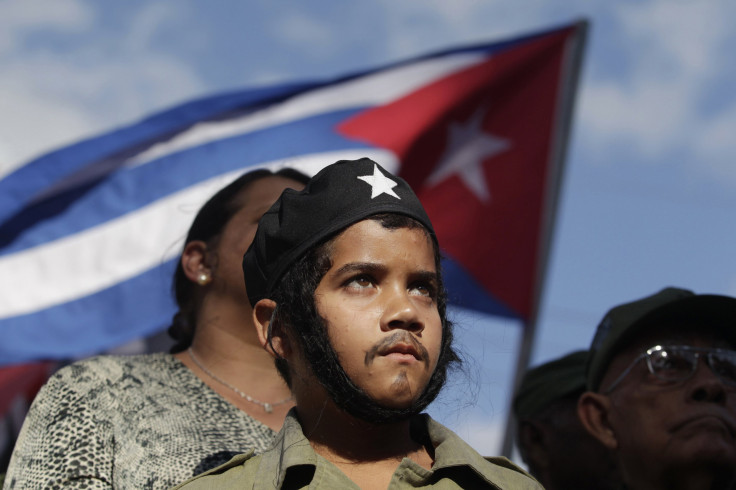Cuba Facts: Tourism, Embargo, Baseball, Music All Part Of Island Nation's Culture, History

Cuba's culture and history has intrigued a new generation of Americans since President Barack Obama announced he would normalize relations with the island nation and allow for easier travel there. The Caribbean country has long been an attractive mystery for many Americans partly because it has been blocked off from trade relations with the U.S. for so long. It's colonial homes, crumbling facades and 1950s Buicks, Fords, and Chevrolets can often paint the image of a country stuck in time.
The U.S. announced last week new travel and commerce sanctions on Cuba. Under the policy shift, it is still illegal for Americans to own property in Cuba or to travel there for tourism. But that could soon change. Obama urged Congress to formally lift the decades-long embargo against Cuba during the State of the Union address Tuesday night. "Our shift in Cuba policy has the potential to end a legacy of mistrust in our hemisphere; removes a phony excuse for restrictions in Cuba; stands up for democratic values; and extends the hand of friendship to the Cuban people," he said. "And this year, Congress should begin the work of ending the embargo."
For Americans taking a new look at their southern neighbor, there's much more to Cuba than just U.S.- trade relations. Cuba's politics, baseball, music, food and tourism are all part of its charm, culture and history. Below are some facts about Cuba that are key to understanding life in the poor, but vibrant nation.
Politics: The Cuban government for years have imprisoned and repressed its critics, according to Human Rights Watch. Punishments include beatings, public acts of shaming, termination of employment and long-term imprisonment. The Cuban Commission for Human Rights and National Reconciliation -- an independent human rights group considered illegal by the Castro regime -- reported more than 3,600 reports of arbitrary detentions from January through September 2013, compared with roughly 2,100 in 2010.
Baseball: Cubans share one major interest with Americans. The Cuban government controls the employment of Cuban players, but some are smuggled out to play in the United States. There were 27 Cuban-born players in Major League Baseball this past season, according to the Miami Herald. Fidel Castro has said athletes are the “standard-bearers of the revolution playing for the love of the people, not money.”
Food: Cubans have no choice but to depend on limited monthly rations of government-subsidized staples such as rice, beans and coffee to survive. The impoverished nation has seen chronic food shortages that have allowed a black market for food to thrive. Culinary traditions include a beef stew known as ropa vieja and the caramel-flavored dessert flan de leche.
Tourism: Roughly 90,000 Americans visit Cuba every year. The Cuban government claims international tourism brought in roughly $2.3 billion in 2013, up from $1.9 billion in 2009. During that time, the number of hotel rooms increased by up to 2,000 to a total of 52,600 nationwide, according to Reuters.
Music: For decades, Americans have enjoyed Cuban performers such as Arsenio Rodriguez, Celia Cruz and Chano Pozo. Being a musician is a state-licensed job in Cuba and sounds on the island include jazz, salsa, hip hop and rock. Below are music videos from some of Cuba's most famous recording artists:
© Copyright IBTimes 2024. All rights reserved.





















